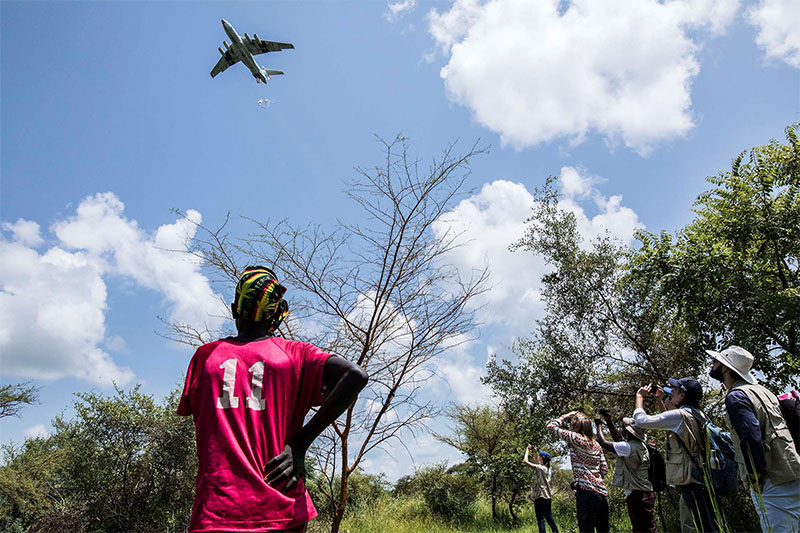UN struggling to deliver food aid in South Sudan as rains cut off vast areas
KATDALOK: The UN World Food Programme has been forced to carry out air drops of food aid across South Sudan as the rainy season makes about 70 percent of the country inaccessible, a regional head of logistics for WFP said on Monday.
In addition to the inaccessible terrain, aid groups also have to contend with being targeted by armed groups operating in South Sudan. Both rebels and government forces have been accused of targeting humanitarian workers and sometimes blocking access to relief and hijacking food and other aid.
Tens of thousands of people have been killed in a war initially fought between troops loyal to President Salva Kiir against rebels under former vice president Riek Machar. The violence has spread throughout the country and has often been fought along ethnic lines.
The WFP said that at the beginning of this year, some 7.1 million people were projected to be facing severe food insecurity at the height of the lean season from May to July.
“We are already in the middle of the rainy season and approximately 70 percent of the country is not accessible, and as the result, we have to rely mainly on innovative ways of delivering the cargo,” Adham Effendi, head of logistics for WFP in South Sudan, told Reuters during a trip to Katdalok in Jonglei state, near the border with Ethiopia
“As you can see today in Katdalok, we have to feed approximately 5,000 people and we need to deliver 9 tonnes of cargo, which are approximately three planes loads, which we have to deliver between today and tomorrow," he said.
Katdalok is in an area under government control.
“Many people are suffering in this county because no roads to connect us with other parts. For example, people go on foot two to three hours from their villages to reach the distribution centre here," James Kalany Remkhor of the Relief and Rehabilitation Commission staff in Katdalok said.
“The area lacks health facilities. We only have one borehole, and the population are coming here to get clean water, which is very hard for our people."






